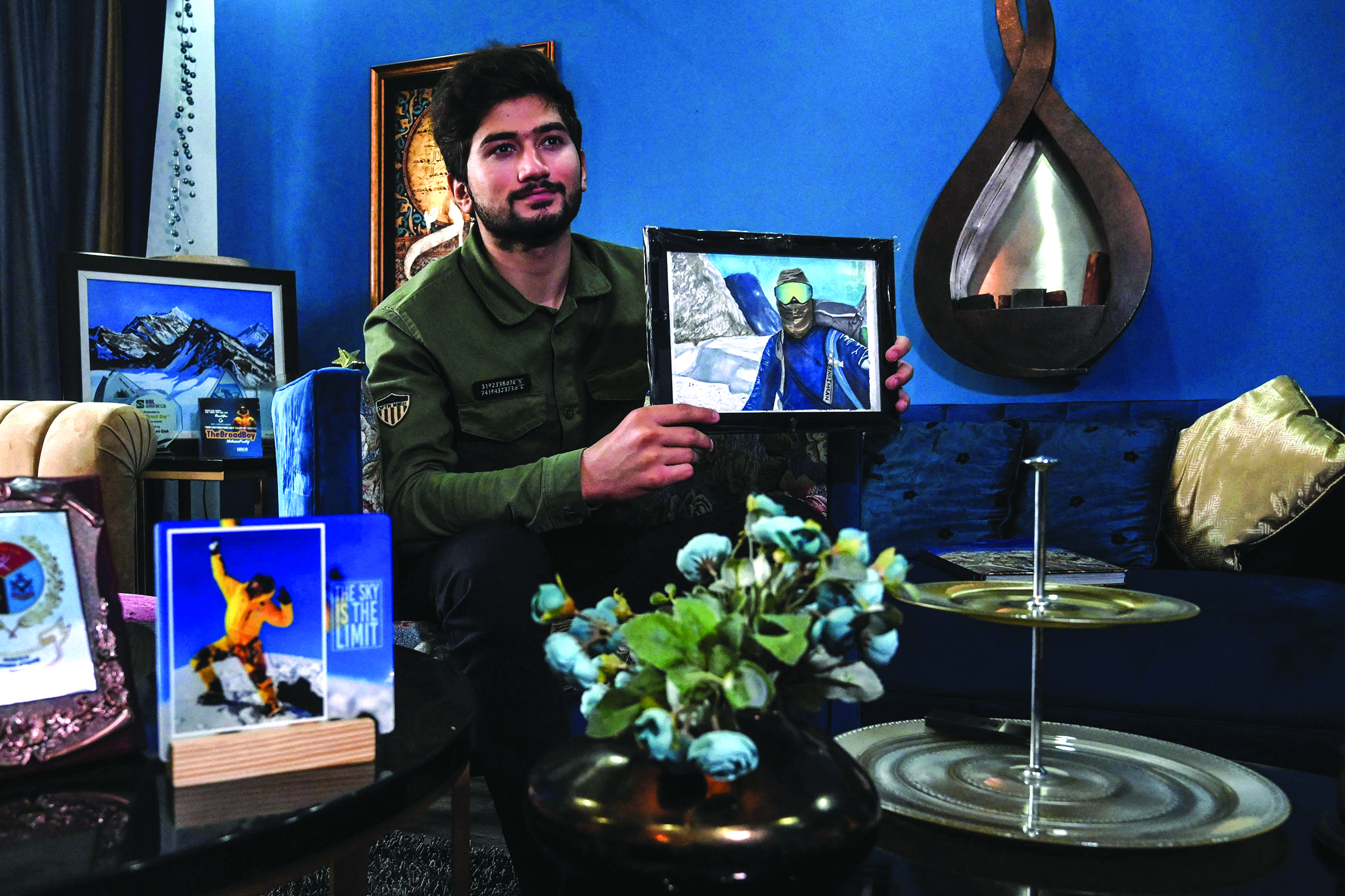LAHORE: Pakistani mountaineer Shehroze Kashif faced many dangers climbing the planet’s tallest peaks, but his toughest moment came when he passed the corpse of his hero on the savage slopes of the K2. Kashif was 19-years and 138 days old in July when he became the youngest person to summit both the world’s highest peak, Mount Everest and the second highest peak K2.
It was just below the infamous stretch known as the Bottleneck, that he passed the bodies of Iceland’s John Snorri, Chile’s Juan Pablo Mohr and Pakistan’s climbing legend Ali Sadpara. “The most emotional moment for me was going on past those climbers, the dead body of Pakistan’s national hero,” Kashif told AFP during an interview.
Many Pakistanis have crucial roles as high-altitude porters, but Sadpara was one of the few to break into the elite ranks of mostly Western climbers who have long dominated headlines in mountaineering. He was declared missing along with Snorri and Mohr on February 5.
Their bodies were found on July 26, following a search that lasted five months. Kashif made his summit push as dawn broke the next morning. “I got emotional, thinking that they had come with the same passion I had,” revealed Kashif, when speaking of the deceased, and added that, “but then I thought, why not fulfil their unfulfilled dream? And I took their dream with me.”
No Ordinary Feat
This month, the Guinness Book of World Records officially declared Kashif the youngest person to climb K2 and the youngest to climb both the world’s highest mountains. The record-breaker summited Everest, which at 8,849 metres is Earth’s tallest peak, in May.
However, the 8,611-metre K2 – which is commonly referred to as the ‘Savage Mountain’ and is located near Pakistan’s border with China – is the more brutal climb. They are “poles apart,” said Kashif of the two peaks and called K2 a ‘beast.’ This is not a surprising assessment as, in winter, winds can blow at more than 200 kilometres per hour and temperatures can drop to minus 60 degrees Celsius. Due to these harsh conditions the young climber suffered snow blindness and frostbite, and considers himself lucky that his big toe was not amputated.
“My energy was very low, it was a difficult time. One wrong step and you are history,” he said of experience while speaking to AFP from his home in Lahore.
On to the next thing
Kashif was first entranced by the mountains at the young age of 11, when he spotted the scenic 3,885 metre Himalayan peak Makra while on holiday with his father in northern Pakistan. “It all started there,” he maintained. According to the mountaineer, while he stood on the proverbial top of the world he felt he ‘chosen’ – a feeling he says he left on the peak, “so others coming behind you can also feel it.”
However, this historic feat is not enough. Kashif plans to become the youngest person to climb the world’s 14 highest mountains; each of these peaks are above 8,000 metres. All of these peaks lie in Asia, in the Himalayas and the Karakoram range, and five can be found in Pakistan alone.
Only around 40 people in history are believed to have climbed all 14, however as it is very difficult to verify summit claims, some experts believe there could be even fewer. The youngest of these climbers, is Mingma Gyabu ‘David’ Sherpa, of Nepal, who the Guinness Book of World Records said summited them all by age 30.
Kashif, who is just 19-years-old, still has 10 to go. So far the Pakistani climber has summited Manaslu in Nepal and Broad Peak in Pakistan, the eighth and 12th highest mountains respectively. He has given himself until 2024 to summit the rest.
However, this does not mean that he takes the task lightly. He is well aware of the dangers. While all of Pakistan, including Kashif, mourned the loss of Sadpara, Kashif also lost a close friend Pakistani-Swiss climber Abdul Waraich, on Everest in May.
Still, he refuses to contemplate an urban life at sea-level. “I think mountains are blessings of God,” he maintained, and said that he feels ‘tired’ when his looks at cities and all he sees are concrete buildings, garbage and pollution. “I just go where I feel most alive, and I feel mountains are the most suitable place for me.”

















